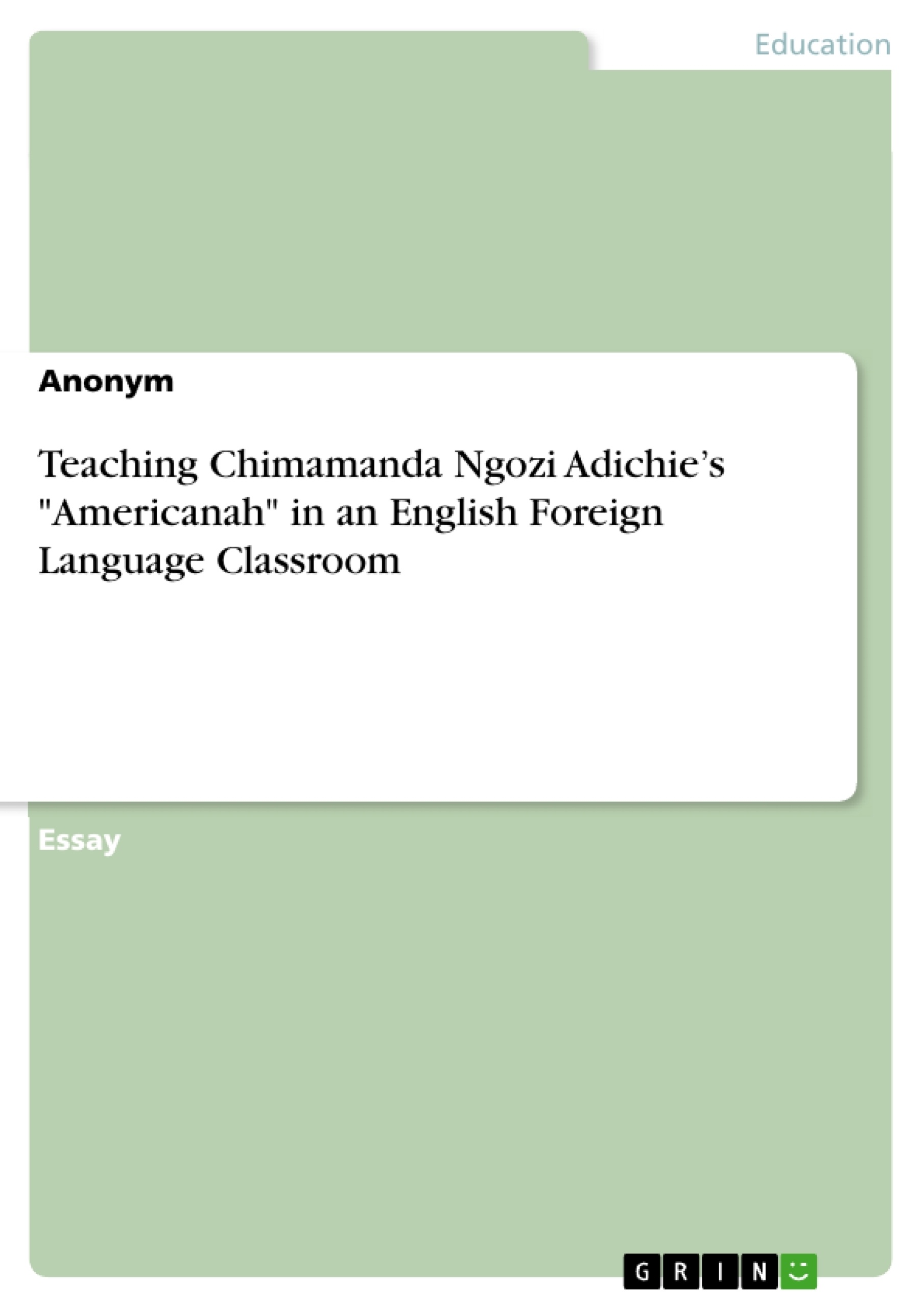Literature has always played an essential role in the EFLC. Students have always had to deal with complicated and challenging works of literature. And not only in their native language, but also in their second language. It is considered that in this way they can improve their competences and language skills. But it is also believed to raise intercultural awareness by reading, for example, African literature. Most of the literature that is chosen for being read in school consists of known classic literature such as Shakespeare, Goethe or other white and male writers.
All you see in today's world is literature about love, about science fiction, and so on. African literature was not about that, of course there are a bunch of writings about that. But that's not the main theme of the literature. African literature is dealing mostly with situations or themes that occurred or are occurring in their culture. The first writings from that time were about slavery and especially about its suffering and the pain that slaves had to go through. It is mostly about the experience of living in a segregated society. This paper will examine how important African literature is. It has to be mentioned that African literature is not the only, but one of many possibilities of literature that can be used.
Since it is not easy to discuss African literature in general, this essay will focus mainly on the novel Americanah by Chimamanda Ngozi Adichie. This book is meant to be representative for the African Literature. My teacher recommended this novel to us in my school days when we read Mother to Mother by Sindiwe Magona. This term paper will investigate the potential of this book
Inhaltsverzeichnis (Table of Contents)
- Introduction
- Teaching Literature in an EFLC
- Why We Should Teach Literature in School
- Raising Awareness of Identities
- Americanah by Chimamanda Ngozi Adichie
- Subjects to Discuss in The Classroom
- Discrimination
- A Teaching Proposal
- A Fictional Teaching Unit
- Detailed Teaching Grid
- Reasoning
- Reflection
Zielsetzung und Themenschwerpunkte (Objectives and Key Themes)
This paper explores the significance of teaching African literature in an English as a Foreign Language classroom. It emphasizes the importance of exposing students to diverse literary voices and perspectives, particularly from marginalized cultures. The primary goal is to examine the potential of Chimamanda Ngozi Adichie’s novel “Americanah” as a pedagogical tool for raising intercultural awareness, promoting language development, and fostering critical thinking in EFL students.
- The importance of teaching literature in an EFLC
- The value of African literature for EFL students
- The potential of Chimamanda Ngozi Adichie's "Americanah" in the EFLC
- Raising awareness of cultural identities
- Promoting language learning through literature
Zusammenfassung der Kapitel (Chapter Summaries)
The introductory chapter delves into the historical significance of literature in EFL classrooms, acknowledging the challenges students face when engaging with complex literary works in their second language. It highlights the role of literature in improving language skills and promoting intercultural understanding, particularly through exposure to African literature. This chapter emphasizes the need for diversifying the literary canon beyond traditional European and Western authors, emphasizing the relevance and value of African voices and experiences.
The second chapter delves deeper into the rationale for integrating literature into EFL instruction. It presents arguments for why literature is an essential tool for language learning, cultural awareness, and developing empathy and tolerance. This chapter underscores the significance of literature in exposing students to diverse perspectives, helping them to understand "difference" and appreciate the richness of cultural diversity. It also emphasizes the role of literature in enhancing vocabulary, providing authentic contexts for language acquisition, and stimulating critical thinking.
The chapter on "Americanah" examines the novel's potential as a representative text for exploring themes of culture, identity, and migration. It acknowledges the novel’s capacity to engage students in discussions about discrimination, intercultural communication, and the complexities of navigating different cultural contexts. The chapter suggests ways in which the novel can be used to facilitate classroom discussions and promote deeper understanding of African perspectives and experiences.
The final chapter focuses on the practical implications of integrating "Americanah" into an EFL curriculum. It presents a detailed teaching proposal, outlining a fictional teaching unit, a structured teaching grid, and reasoning for its implementation. The chapter concludes by reflecting on the potential impact of this pedagogical approach in fostering cultural awareness, language development, and critical thinking among EFL students.
Schlüsselwörter (Keywords)
This paper explores the crucial role of African literature in EFL education, with a particular focus on Chimamanda Ngozi Adichie’s "Americanah." Key terms and concepts include: intercultural awareness, language learning, cultural diversity, teaching literature, identity formation, discrimination, migration, and the impact of African literature in the EFL classroom. The study emphasizes the importance of expanding the literary canon to include diverse perspectives and the need to engage students in critical discussions about cultural differences, social justice, and the complexities of navigating globalized identities.
- Quote paper
- Anonym (Author), 2019, Teaching Chimamanda Ngozi Adichie’s "Americanah" in an English Foreign Language Classroom, Munich, GRIN Verlag, https://www.grin.com/document/1244984



